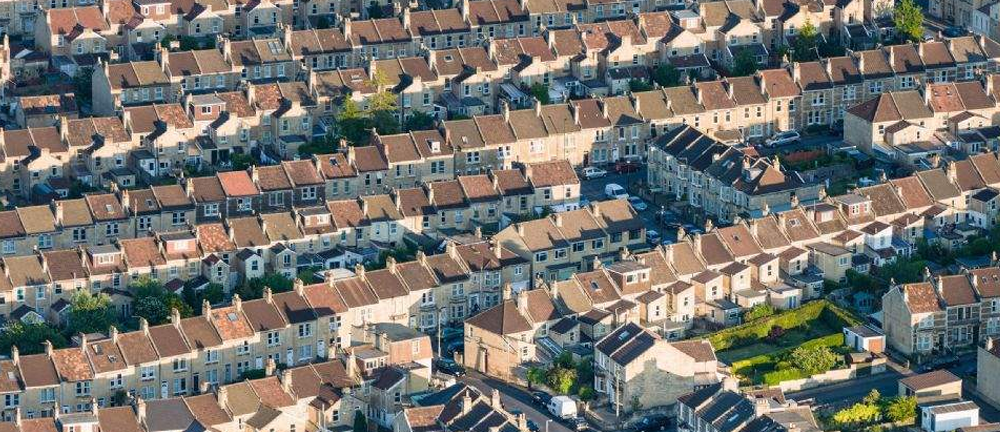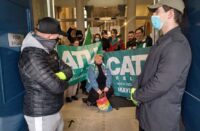The housing crisis will not be solved by treating the symptoms. The root cause—the Government’s political strategy of transferring the provision of homes to the private sector—is the problem that has to be tackled if we are to solve this crisis permanently.
This requires a sustained national building campaign by the state for publicly owned housing, as was done from the 1930s to the 70s. Homes must be universally accessible, for rents linked to income, with a new public housing service—similar to health, education, or transport—and on an all-Ireland basis, as British colonialism in the North has also failed to meet the needs of the citizens.
The common denominator north and south is capitalism.
The housing crisis is used by many politicians as a tactic for getting elected. They are not necessarily trying to solve the problem—some of course are, but most have no intention and no interest in solving it. The proof of this is that the housing problem for citizens has not improved over the last decade—in fact it’s getting worse, as the interests of capital are the priority of the politicians.
Once in the Dáil or Stormont they become part of what Connolly called the “committee of the rich” and set about confusing, distracting and watering down demands to protect the interests of the capitalist class.
An example of watering down demands is the “cost-rental model” for public housing. This is a system whereby the tenant pays the full cost of building and maintaining the house over a period of thirty years, even up to and including the provision of a sinking fund that would provide for any unplanned costs, such as re-roofing, plumbing, rewiring, etc.
So to receive a reduction in rent of about 25 per cent of the exorbitant rack-rents demanded by the market without ever owning the home, ownership would be in the hands of finance capital. If the rent is still unaffordable the state will subsidise it, thus using the low-paid worker as a vehicle for transferring more wealth by way of rent subsidies back to the propertied classes, who in many cases are one and the same as those paying the poverty wages to workers that make rents unaffordable in the first place.
There is no crisis that capitalism cannot solve so long as the working class are willing to pay for it.
Income-linked differential rent is the proven system that worked for generations of public-housing tenants who lived comfortably in many thousands of homes built and owned by the state.
Ownership is always a class issue, and whoever owns the homes controls the cost, rent, availability, and design; that is, what the market considers a suitable home for the working class. Once the state owns the property the private sector is excluded and denied access to the massive income stream and the power attained through the provision of shelter.
Differential rents in Ireland are 10–15 per cent of income. Today some people spend as much as 70 per cent of their income on rent, with no security of tenure. They can be evicted at the whim of the landlord. All this money denied to the economy goes straight into the pockets of the elite.
Others spend forty years skimping and saving to pay off a mortgage on a home they will only ever own for a few years before their death. This money goes directly to the propertied classes also.
We must break with the idea of private property and land-ownership. We need to reverse the policy of selling public housing to tenants. An essential strand in public housing would be the purchasing by the state, particularly from older people or those nearing retirement, of the family home, while allowing them to live in it until they depart this life. This would end pension poverty for many people and also add to the public housing stock of the state.
With a state-owned building company, building workers will have well-paid union jobs and continuity of work, with an end to the boom and bust in the building industry, unemployment, and the emigrant ship.
With the state now building enough homes each year to house the people, property prices will stabilise and then fall. The private rented accommodation used by landlords to suck the blood from citizens through excessive rents will now be worth only a small fraction of their previous value. The state should have no hesitation in buying these properties for knock-down prices and adding them to the public housing stock.
With differential rents, citizens are freed from the burden of massive debt, or excessive rents, at the behest of landlords and banks.
More disposable income in the citizen’s pocket as a result of reduced rents in turn puts more money into the local economy, providing more jobs and security for society as a whole. This is the ultimate transformative demand which can free citizens from poverty and insecurity of shelter and be a foundation-stone for ending inequality.
Social wellbeing and health will improve, with the burden of debt, uncertainty and unaffordable rents becoming a thing of the past. As free time grows, quality of life will improve, and emboldened workers can reach their full potential and achieve new goals only ever dreamed of in the past.
Public housing is the solution to the housing crisis.
Can it be done?
In 2006, 93,419 homes were built in Ireland. The narrative has been created by the state that there is a shortage of construction workers. There is no such shortage; but construction workers are building for the needs of capital, not society. Most of them are building hotels, data centres, and office blocks, which should not be the priority in the middle of a housing crisis. Of course the housing crisis is a crisis only for the citizen, not for the developers, speculators, and bankers.
There is a housing emergency, caused by the Government’s housing policy.
In times of emergency the state needs to act. It’s ironic that any time there is an economic or social emergency socialist policies are enacted, whether nationalising the banks in 2008, or taking over the private hospitals during the pandemic, or building public housing in 1930–1970.
The capitalist class only allows this as a temporary measure, a short-term compromise with the working class.
Who would complain if we were to keep the Beacon Hospital, AIB Bank or all the council houses in public ownership in perpetuity as state assets, to benefit society as a whole?
Instead of socialising debt and subsidising landlords, it’s time to nationalise the building of homes, with a state-owned construction company to build and maintain universally accessible public housing for the common good.
For that matter, why stop at housing? There is certainly a case for nationalising all industry and starting to build an economy for the common good.
“I personally will not apologise for being a landlord.”
—Robert Troy (Fianna Fáil).






